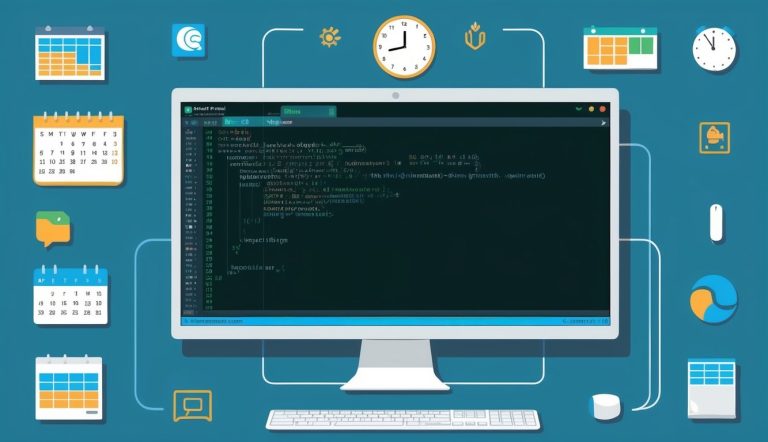Advanced Cron Job Techniques
Mastering advanced cron techniques allows you to automate complex tasks and manage system resources more efficiently. These methods go beyond basic scheduling and help you gain fine-grained control over your automated processes.
Managing Crontab for Multiple Users
Different users on a Linux system can have their own crontab files. The root user has special privileges to manage crontabs for any user on the system. To edit another user’s crontab, use:
sudo crontab -u username -eSystem-wide cron jobs can be set up in the /etc/cron.d/ directory. These files follow the same syntax as regular crontabs but allow for more structured organization of tasks.
# Example of a job in /etc/cron.d/backup
0 2 * * * username /path/to/backup.shFor critical operations, administrators often create dedicated crontab files for specific applications rather than mixing them with user-specific tasks. This approach makes maintenance easier and reduces the risk of accidental modifications.
Environment Variables and Crontab
Cron jobs run with a limited set of environment variables, which can cause unexpected behavior. To see the default environment for cron, add this to your crontab:
* * * * * env > /tmp/cron-env.txtThere are two ways to set environment variables in crontab:
- Direct assignment at the top of the crontab file:
PATH=/usr/local/bin:/usr/bin:/bin
[email protected]- Within the command being executed:
0 5 * * * export DBUSER=admin; /scripts/backup-db.shThe MAILTO variable is particularly useful as it defines where cron sends the output of commands. Setting MAILTO="" suppresses email notifications completely.
Restricting and Allowing User Access
Linux provides mechanisms to control which users can schedule cron jobs. The primary control files are /etc/cron.allow and /etc/cron.deny.
If /etc/cron.allow exists, only users listed in this file can use crontab. If it doesn’t exist but /etc/cron.deny does, users listed in the deny file cannot use crontab.
# Add a user to cron.allow
echo "username" >> /etc/cron.allow
# Deny a user from using cron
echo "username" >> /etc/cron.denyTo completely disable a specific cron job without deleting it, you can comment it out by adding a # at the beginning of the line or change its state to inactive in system logs through appropriate commands.
Troubleshooting Cron Jobs
When cron jobs fail, check the following common issues:
- Verify the cron daemon is running:
systemctl status cron- Check syntax errors with:
crontab -l | crontab -- Review log files for errors:
grep CRON /var/log/syslogAdding proper error handling to your scripts helps identify issues faster:
0 * * * * /path/to/script.sh 2>/home/user/cronerror.logTesting commands manually before adding them to crontab can prevent many problems. Remember that cron runs in a different environment, so absolute paths for commands are recommended to avoid path-related failures.
For recurring issues, adding a simple wrapper script with detailed logging can make debugging much easier than trying to troubleshoot directly from cryptic cron error messages.


